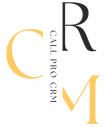Company Management
To lead a company, one must also manage the corporation, or entity. Management involves setting protocols for how employees report to their supervisors and recognize them for their work; it also includes establishing a hierarchy of leadership positions – a lot of behind-the-scenes work. So, in order to manage all aspects of an organization effectively, managers need to have access to the right tools at their fingertips. A CRM software with company management features will help you keep track of different aspects of your organizational performance.

Why Do You Need A Company Management CRM?
It’s important for a company to have good management software to manage all aspects of an organization because so many aspects of the job are intangible. Managers should have a clear understanding of their company’s mission and consider integrating the right CRM to automate many business functions so that business stays on track and grows as expected.
A CRM used for company management encompasses automation of tasks that foster productivity, quality work and positive relationships between employees and customers, maximizing profitability for a business. A CRM can help managers perform a variety of tasks, such as:
- Hiring employees, tracking employees’ performance and their workloads
- Communicating with teams, stakeholders, and customers
- Managing accounts receivable and optimizing company’s cash flow
- Improve relationships with customers and stakeholders
Best Company Management Software
You Should Be Using
Let’s look at some of the best business management software that can help you kick your company into high gear:

Bit.AI
Bit.ai is an awesome business management software for document collaboration. It allows you to create customized documents for teams using fully responsive templates and organize them in multiple workspaces and folders for easier collaboration. You can chat with your team in real-time, track each document, and integrate 100+ platforms to amplify productivity multifold.

ProofHub
ProofHub is a business management software that helps businesses manage everyday tasks in one central location, allowing people to sort through the clutter and visualize what needs to be done seamlessly. You can delegate tasks to your team, monitor their progress as they complete those tasks, and request updates from them at any time. By planning out the rest of the week in advance and taking meeting notes during discussions with coworkers or clients on a conference call, you are able to dictate what information gets shared with everyone else quickly by sending company-wide announcements through Pidgin’s chat platform.
Moreover, it has a task management section responsible for the creation, management, and tracking of tasks in a project. The collaboration section offers time management to keep track of team’s time spending patterns. Whereas, the file management feature enables you to store files and smartly manages file copies, versioning, and sorting in one convenient location..

Scoro
It’s an all-in-one company management software aimed at centralizing your teams, projects, sales, and reports at one place. You can manage work efficiently, manage contacts, invoices, and bill for completed projects within a single solution. Plus, there’s a time tracking option that helps you track time, work,and progress to stay updated with your team’s everyday activities and progress.
The Best CRM Software
Each customer or prospect interaction is important in business, but it can become tedious to keep track of them all using address books and spreadsheets. Customer relationship management (CRM) software can help you stay on top of the task. With CRM software, you can be sure that you won’t miss a beat when it comes to keeping tabs on your customers and prospects. These highly rated CRM services are great places to start.

Salesforce Sales Cloud Lightning Professional

Zoho CRM
No matter your team size, Zoho CRM has cost-effective options that can expand with you. How reasonable? Kick off for free with three users, followed by the tailored CRM ($7/month/user), and up to their comprehensive Plus plan ($57/month). To sweeten this deal further, they offer a range of add-on suites – such as Finance Custom Apps or Forms – which seamlessly integrate into whichever package is chosen. It has the best scalability potential. This edition’s built-in channels, such as projects, marketing, help desk, and social, can all be accessed from the main CRM dashboard. To access settings for any one of these channels, click the settings icon and select the channel.

Fresh Sales CRM
Freshsales is an entry-level CRM suitable for SMEs because of its easy-to-use features, extensive customization options, and third party tools integrations to scale functionality. You can integrate calendars, email marketing software, and DocuSign tools to automate your many operations involved in customer relationship management. The software is lightweight and will enable your team to quickly start closing deals and get up to speed.

HubSpot CRM
HubSpot is a platform that allows you to keep a track of leads and customers at different stages in their journey. It comes with live chat, dynamic lists and forms for lead capture—all designed to help companies generate more sales opportunities. HubSpot forms provide the backbone for your marketing and sales efforts by enabling you to collect data about prospects and customers—including their behavior on your website, personal information, as well as a historic record of engagement with your brand.
